|
Books Should Be Free Loyal Books Free Public Domain Audiobooks & eBook Downloads |
|
|
Books Should Be Free Loyal Books Free Public Domain Audiobooks & eBook Downloads |
|
Non-fiction |
|---|
|
Book type:
Sort by:
View by:
|
By: Pierre Loti (1850-1923) | |
|---|---|
 War
War
Pierre Loti [Julien Viaud] (1850-1923) was a French naval officer and novelist. The present book is one of his few works of non-fiction, a small collection of letters and diary entries that describe his views and experiences in the wars and military operations in which he participated. Besides World War I, he also sheds light upon his views and involvement in the preparations for the Turkish Revolution of 1923, for which until today a famous hill and popular café in Istanbul are named after him. | |
By: Mark Twain (1835-1910) | |
|---|---|
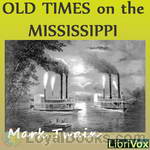 Old times on the Mississippi
Old times on the Mississippi
Old Times on the Mississippi is a non-fiction work by Mark Twain. It was published in 1876. Originally published in serial form in the Atlantic Monthly, in 1875, this same work was published as chapters 4 through 17 in Twain's later work, Life on the Mississippi (1883). Old Times on the the Mississippi has one last chapter that has nothing to do with the rest of the book. A Literary Nightmare describes the funny/sad/maddening effect that a catchy jingle can have on those unlucky enough to be captured by one. | |
By: Andrew Murray (1828-1917) | |
|---|---|
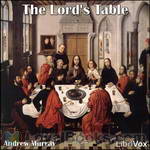 The Lord's Table
The Lord's Table
Murray suggests that his devotional, The Lord's Table, is not meant to replace scripture, but rather to strengthen believers' appreciation of God's word. Murray's meditations provide a thoughtful guide for believers who desire to develop a deeper understanding of the Lord's Holy Supper. The devotional covers the week before, during, and after the Supper, and each entry is labeled with the day of the week so that readers can manage devotions with ease. Murray first explains how believers can prepare to receive God's blessing during the weeks before the Supper... | |
By: Various | |
|---|---|
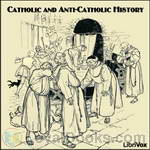 Catholic and Anti-Catholic History
Catholic and Anti-Catholic History
G.K. Chesterton and James Walsh join Hilaire Belloc in an energetic rollout of the means by which history becomes propaganda, to the damage, not only to truth, but to the human soul. | |
By: Benjamin Harris (1781-1858) | |
|---|---|
 The Recollections of Rifleman Harris
The Recollections of Rifleman Harris
The recollections of a British infantryman who served in the British army during the Napoleonic Wars. | |
By: Arnold Bennett (1867-1931) | |
|---|---|
 Self and Self-management: Essays about Existing
Self and Self-management: Essays about Existing
Bennett's essays always provide food for thought and bring a wry smile to the lips. Human nature, it appears, changes little over the ages, and Bennett's writing stands the test of time, though in the case of some of the essays in this eclectic collection, it is well to remember that they were written at the time of the First World War and the fight for women's suffrage. | |
By: Charles H. Spurgeon (1834-1892) | |
|---|---|
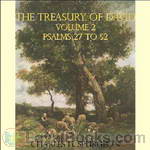 The Treasury of David, Vol. 2 (Abridged)
The Treasury of David, Vol. 2 (Abridged)
Charles Spurgeon was a British Particular Baptist preacher who remains highly influential among Christians of different denominations, among whom he is still known as the “Prince of Preachers”. In his lifetime, Spurgeon preached to around 10,000,000 people, often up to 10 times each week at different places. He was the pastor of the congregation of the New Park Street Chapel (later the Metropolitan Tabernacle) in London for 38 years.Spurgeon was a prolific author of many types of works. His accessible commentaries on the Psalms are a combination of meditation and teaching and are appropriate for anyone wanting to understand these familiar poems on a deeper level... | |
By: Henry Hazlitt (1894-1993) | |
|---|---|
 Thinking as a Science
Thinking as a Science
Written in a conversational style that will appeal to the younger person as well as seasoned professional, "Thinking as a Science" is timeless classic. Through eleven chapters, the last being a descriptive, annotated bibliography, Henry Hazlitt systematically takes the step-by-step on the process of introducing logic and context into the thinking process. The rather long chapter on "Reading and Thinking" clarifies several notions on where one needs to understand where mere knowledge acquisition ends and using reading the stimulate thinking begins.For an individual who was largely self taught, Hazlitt's contribution to the process of thinking is a must-read. | |
By: H. G. Wells (1866-1946) | |
|---|---|
 Anticipations
Anticipations
Wells considered this book one of his most important, a natural follow-up to such works as his Man of the Year Million and The Time Machine. His goal was to get people to think and act in new ways. The book starts with a look at how humans get along socially and how they carry out their business ventures. It then discusses how these elements influence others, such as politics, the world of work, and education. H. G. tried to make clear how the current social order was disintegrating without preparing another to take its place. He then traced the roots of democracy, which in its present state he saw as unworkable. Instead, he proposed a new republic. He also critiqued modern warfare. | |
By: Ida Dandridge Bennett | |
|---|---|
 The Vegetable Garden: A Manual for the Amateur Vegetable Gardener
The Vegetable Garden: A Manual for the Amateur Vegetable Gardener
This book is a good reference on vegetable gardening. It covers the economic value of a vegetable garden, planning and locating the garden, maintaining soil fertility, hotbeds, garden tools, sowing seeds, transplanting seedlings, growing and storing vegetables, managing garden pests, and fall garden work. | |
By: Rev. Gerald T. Brennan | |
|---|---|
 Angel Food: Little Talks to Little Folks
Angel Food: Little Talks to Little Folks
"Angel Food" consists of a series of short sermons for children on the truths of the Catholic Faith - but told with engaging stories, in a style and simple language that children can understand.The author was a parish priest in New York for many years during the mid 1900's. He was the author of several books for children, the most well known being the books in what is considered the "Angel Food" series. | |
By: Saint Francis de Sales (1567-1622) | |
|---|---|
 The Consoling Thoughts of Saint Francis de Sales
The Consoling Thoughts of Saint Francis de Sales
Francis de Sales (1567-1622) was a French priest and later bishop of Geneva who was revered as a master of spiritual direction and fondly remembered for his keen insights into the personal spiritual struggles of men and women of all faiths. His Introduction to the Devout Life, which he wrote especially for laypersons, and his Treatise on the Love of God remain fundamental reading for all earthly pilgrims who seek personal moral improvement and strive for spiritual perfection.Pere Huguet has gathered together in this one volume some of the more poignant insights and suggestions contained in the writings of Saint Francis de Sales and organized them under more than eighty chapters... | |
By: Catherine of Genoa | |
|---|---|
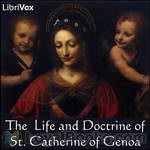 The Life and Doctrine of St. Catherine of Genoa
The Life and Doctrine of St. Catherine of Genoa
Saint Catherine of Genoa (Caterina Fieschi Adorno, born Genoa 1447 – 15 September 1510) is an Italian Roman Catholic saint and mystic, admired for her work among the sick and the poor. She was a member of the noble Fieschi family, and spent most of her life and her means serving the sick, especially during the plague which ravaged Genoa in 1497 and 1501. She died in that city in 1510.In 1551, 41 years after her death, a book about her life and teaching was published, entitled Libro de la vita mirabile et dottrina santa de la Beata Caterinetta de Genoa... | |
By: Hippolytus of Rome (170-235) | |
|---|---|
 Treatise on Christ and Antichrist
Treatise on Christ and Antichrist
In this late second century treatise, Hippolytus gives an excellent summary of Early Christian thinking on the subject of the antichrist. Familiar texts from Daniel and Revelation are treated together with his own current events to give a unique perspective. (Summary by Jonathan Lange) | |
By: Ida M. Tarbell (1857-1944) | |
|---|---|
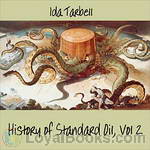 The History of Standard Oil: Volume 2
The History of Standard Oil: Volume 2
The History of the Standard Oil Company is a book written by journalist Ida Tarbell in 1904. It was an exposé of the Standard Oil Company, run at that time by oil tycoon John D. Rockefeller, the richest figure in America's history. Originally serialized in 19 parts in McClure's magazine, the book was a seminal example of muckraking, and inspired many other journalists to write about trusts, large businesses that (in the absence of strong antitrust law in the 19th century) attempted to gain monopolies in various industries. The History of the Standard Oil Company was credited with hastening the breakup of Standard Oil, which came about in 1911. | |
By: Pliny the Elder | |
|---|---|
 The Natural History, volume 2
The Natural History, volume 2
Naturalis Historia (Latin for "Natural History") is an encyclopedia published circa AD 77-79 by Pliny the Elder. It is one of the largest single works to have survived from the Roman empire to the modern day and purports to cover the entire field of ancient knowledge, based on the best authorities available to Pliny. The work became a model for all later encyclopedias in terms of the breadth of subject matter examined, the need to reference original authors, and a comprehensive index list of the contents... | |
By: John Cargill Brough (1834-1872) | |
|---|---|
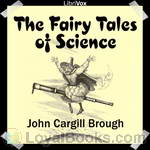 The Fairy Tales of Science
The Fairy Tales of Science
This book, written in the mid 19th century and illustrated by Charles H. Bennett, provides an entertaining introduction to topics in science for children. In each chapter, the author uses a popular myth or fairy tale to lay the groundwork for an equally fascinating "fairy tale of science" full of interesting facts and real life examples. | |
By: Hannah Whitall Smith (1832-1911) | |
|---|---|
 The God of All Comfort
The God of All Comfort
This book is written to Christians who profess to believe the Bible as God's revelation, but whose "lives are filled with discomfort and unrest." Smith aims to show that the Bible's claim that God is the "the God of all comfort" is not an over-advertisement or misunderstanding, but that it is possible to avail ourselves of the doubts and heavy anxieties that plague so many Christians.By explaining God's part and man's part, Smith aims to show her readers that it is possible to overcome feelings of defeat and despair and find rest and peace in Christ... | |
By: Various | |
|---|---|
 National Geographic Magazine Vol. 01 No. 1.
National Geographic Magazine Vol. 01 No. 1.
National Geographic Magazine Volume 1 Number 1 published in 1889. Topics of articles are:Announcement by the National Geographic SocietyIntroductory Address by the PresidentGeographic Methods in Geologic InvestigationClassification of Geographic Forms by GenesisThe Great Storm of March 11 to 14, 1888The Great Storm off the Atlantic Coast of the United States, March 11th to 14th, 1888The Survey of the CoastThe Survey and Map of Massachusetts | |
By: Aristotle (384 BCE-322 BCE) | |
|---|---|
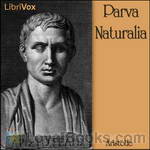 Parva Naturalia
Parva Naturalia
Parva Naturalia [the "short treatises on nature" (a conventional Latin title first used by Giles of Rome)] is a collection of books by Aristotle, which discuss natural phenomena involving the body and the soul. The books are as follows:I - On Sensation and the SensibleII - On Memory and RecollectionIII - On Sleeping and WakingIV - On DreamsV - On Prophecy in SleepVI - On Longevity and Shortness of LifeVII - On Youth and Old Age, Life and Death VIII - On Respiration | |
By: John Phin (1830-1913) | |
|---|---|
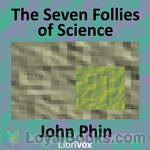 The Seven Follies of Science
The Seven Follies of Science
The seven follies of science; a popular account of the most famous scientific impossibilities and the attempts which have been made to solve them to which is added a small budget of interesting paradoxes, illusions, and marvels. | |
By: Arthur Conan Doyle (1859-1930) | |
|---|---|
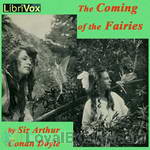 The Coming of the Fairies
The Coming of the Fairies
After a number of deaths in his close family, Sir Arthur Conan Doyle turned to spiritualism in hope of finding proof of the afterlife. Being open in this way, he wanted to believe that spirits and other supernatural being including fairies were real. Because of this he believed the photographs of fairies taken by the Cottingley girls were proof of the existence of such beings. In this book he presents his stance on the issue. Eventually it was proven that the photographs were indeed a hoax. | |
By: Nathaniel Hawthorne (1804-1864) | |
|---|---|
 Our Old Home
Our Old Home
These essays, based on Hawthorne’s stay in England from 1853 to 1857 as American Consul in Liverpool, were first published in the form of a series of travel articles for The Atlantic Monthly.In these writings, he displays his humor, his empathetic nature, his pride in his country, and sometimes his sharp judgment of others. He shares with us the difficulties of being a consul in the 1850’s, takes us on a tour with him through rural England and Scotland, shows us the splendors of London, and the horrors of the poverty that so many suffered. (Introduction by Margaret) | |
By: William Hazlitt | |
|---|---|
 The Plain Speaker: Opinions on Books, Men, and Things
The Plain Speaker: Opinions on Books, Men, and Things
The Plain Speaker: Opinions on Books, Men, and Things is a posthumous collection of essays by William Hazlitt, organized by his grandson, William Carew Hazlitt. The book contains some of Hazlitt's more famous essays that hadn't been previously published in book format. | |
By: Charles Godfrey Leland (1824-1903) (1824-1903) | |
|---|---|
 The Mystic Will
The Mystic Will
This book presents a method of developing and strengthening the faculties of the mind, through the awakened will, by a simple, scientific process possible to any person of ordinary intelligence | |
By: G. K. Chesterton (1874-1936) | |
|---|---|
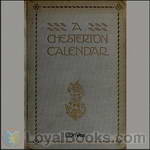 A Chesterton Calendar
A Chesterton Calendar
Go through the year, day by day, with the wit and wisdom of G.K. Chesterton! Compiled from the writings of 'G.K.C', both in verse and in prose, each day of the year is provided with a generally short quotation from one of his many works. Also includes a section apart for the moveable feasts. | |
By: Henry Scougal (1650-1678) | |
|---|---|
 The Life of God in the Soul of Man
The Life of God in the Soul of Man
Henry Scougal was born in Scotland in 1650. The son of the Bishop of Aberdeen, he flourished under rigorous teaching to become Professor of Philosophy at King's College, Aberdeen. In 1672, Scougal was ordained minister in Auchterless and, after a year, returned to King's College as Professor of Divinity. He continued in this office until his death in 1678.The Life of God in the Soul of Man is, in reality, a letter of doctrine and encouragement to a friend wavering in the faith, and was never intended for publication... | |
By: Andrew Murray (1828-1917) | |
|---|---|
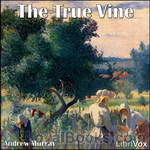 The True Vine
The True Vine
Andrew Murray's True Vine is a thirty-one day devotional focusing on Christ's Parable of the Vine and the Branches in John 15. The devotional for each day, though short, elaborates and expounds upon John 15, providing spiritual insight along the way. Murray repeats important themes--like abiding in Christ--throughout the different days. Noticing how they develop and grow with each successive read, countless small groups and individuals have found Murray's keen spiritual teachings fruitful. An excellent devotional, True Vine is recommended for daily spiritual nourishment. | |
By: Hiram Chase | |
|---|---|
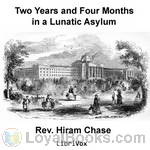 Two Years and Four Months in a Lunatic Asylum
Two Years and Four Months in a Lunatic Asylum
Hiram Chase is a well liked Reverend in a small ministry in Utica. When his mental and physical health deteriorates, he is taken to Utica lunatic asylum. After his stay in the asylum, Hiram documents his experiences and those of other patients in the asylum. He describes his daily routine and the negative experiences he had, along with praising certain individuals whom he met during his "Two Years and Four Months in a Lunatic Asylum". | |
By: Geoffrey H. Malins (1887-1943) | |
|---|---|
 How I Filmed the War
How I Filmed the War
An account of World War I and the experience of filming it by an early cinematographer (and, after the war, successful director) who was there. | |
By: Lord Thomas Cochrane (1775-1860) | |
|---|---|
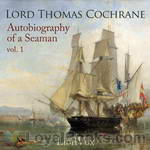 Autobiography of a Seaman, Vol. 1
Autobiography of a Seaman, Vol. 1
This two volume work is the autobiography of Lord Cochrane, a naval captain of the Napoleonic period. His adventures are seminal to the development of naval fiction as a genre. Marryat sailed with Cochrane, while later writers borrowed incidents from this biography for their fictions. Most notable among these is Patrick O'Brian, three of whose novels have clear parallels to incidents in the life of Cochrane. This first volume covers Cochrane's earlier life, during which he is most active militarily. (Introduction by Timothy Ferguson) | |
By: Richard Sibbes (1577-1635) | |
|---|---|
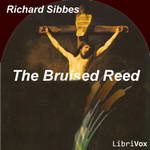 The Bruised Reed
The Bruised Reed
Richard Sibbes was a Puritan pastor and theologian in the 17th century. His best known work, The Bruised Reed, is based on a Scripture verse from Matt. 12:20: "A bruised reed shall he not break, and smoking flax shall he not quench, till he send forth judgment unto victory." Sibbes uses this text to respond to the despondent thoughts and fears that many Christians have. He draws a picture of Christ's gentleness and mercy for the Christians who feel themselves small and weak. The Bruised Reed is full of an amazing amount of soul-comfort... | |
By: W. Max Reid (1839-1911) | |
|---|---|
 The Mohawk Valley
The Mohawk Valley
An in-depth view and early history of the Mohawk Valley in upper New York state, covering the time period of 1609-1780. This historical piece covers that part of the Mohawk Valley between Schenectady and Rome, NY.The narrator hopes that the listener understands that a best effort has been made in pronunciation of many names within this work; particularly those of the Mohawks, Iriquois, Huron, and Mohicans; as well as the French and Dutch. | |
By: Gaston Maspero (1846-1916) | |
|---|---|
 Manual of Egyptian Archaeology and Guide to the Study of Antiquities in Egypt
Manual of Egyptian Archaeology and Guide to the Study of Antiquities in Egypt
A handbook of Egyptian archaeology, issued by the British Museum, considered suitable for British tourists travelling to Egypt in the 19th Century. (Introduction by Timothy Ferguson) | |
By: J. Arthur Thomson (1861-1933) | |
|---|---|
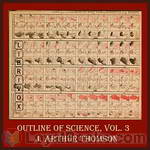 The Outline of Science Vol. 3
The Outline of Science Vol. 3
The Outline of Science was written specifically with the man-on-the-street in mind as the target audience. Covering scientific subjects ranging from astronomy to biology to elementary physics in clear, concise and easily understood prose, this popular science work is largely as relevant today as when first published in 1922.In this third volume (of four), we learn about psychic science, the characteristics and interrelations of living creatures, as well as Botany, Biology, and Chemistry. Some chapters are devoted to the new applied sciences of electricity, telegraphy, and flying. | |
By: William Wells Brown (1814-1884) | |
|---|---|
 My Southern Home or, The South and Its People
My Southern Home or, The South and Its People
William Wells Brown was born a slave, near Lexington, Kentucky. His mother, Elizabeth, was a slave; his father was a white man who never acknowledged his paternity. Brown escaped slavery at about the age of 20. For many years he worked as a steam boatman and as a conductor for the Underground Railroad in Buffalo, New York. In 1843, he became a lecturer for the Western New York Anti-Slavery Society, and was a contemporary of Frederick Douglass.Brown went to Europe in 1849 to encourage British support for the anti-slavery movement in the United States... | |
By: Various | |
|---|---|
 The Night Side of New York
The Night Side of New York
This nonfiction collection of sketches, by "members of the New York press," takes the reader on a tour of 1866 New York City after dark, with stops along the way to vividly depict scenes ranging from the splendid to the squalid - but focusing largely on the latter! | |
By: Elizabeth Cady Stanton (1815-1902) | |
|---|---|
 Eighty Years and More; Reminiscences 1815-1897
Eighty Years and More; Reminiscences 1815-1897
Elizabeth Cady Stanton was one of the premier movers in the original women’s rights movement, along with Susan B. Anthony, her best friend for over 50 years. While Elizabeth initially stayed home with her husband and many babies and wrote the speeches, Susan went on the road to bring the message of the women’s rights movement to an often hostile public. When black men were given the vote in 1870, Susan and Elizabeth led the women’s rights establishment of the time to withhold support for a bill that would extend to black men the rights still denied for women of all colors... | |
By: Charles Warren Stoddard (1843-1909) | |
|---|---|
 The Wonder-Worker of Padua
The Wonder-Worker of Padua
This is the inspiring story of Saint Anthony of Padua (1195-1231). The son of a wealthy Portuguese family, he was initially ordained a priest of the Canons Regular of Saint Augustine. In 1221, he took up the habit of a poor Franciscan friar and devoted his life to fervently preaching the Word of God. His extensive knowledge of Sacred Scripture and keen insights into its profound spiritual meaning astonished his hearers. To confirm the efficacy of his words, God gave him the gifts of prophecy and of performing miracles, the most memorable of which he worked in Padua in northern Italy, where he resided for many years... | |
By: William Cooper Howells | |
|---|---|
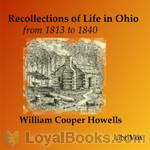 Recollections of Life in Ohio, from 1813 to 1840
Recollections of Life in Ohio, from 1813 to 1840
Recollections of Life in Ohio is the autobiography of William Cooper Howells (1807-1894), father of the American novelist William Dean Howells. The Howells were Welsh woolen mill owners. William Cooper's father brought the family to America in 1808--at a time when Great Britain actually forbid skilled workmen from emigrating, thus putting the father's practical knowledge of mill machinery in great demand. Small scale industries--paper and woolen mills, flour mills, and distilleries were sprouting apace with farms in the newly opened lands of Ohio, where the Howells settled in 1813... | |
By: David Hilbert (1862-1943) | |
|---|---|
 Mathematical Problems
Mathematical Problems
Lecture delivered before the International Congress of Mathematicians at Paris in 1900 and subsequently published in the Bulletin of the American Mathematical Society Vol. 8 (1902), 479-481. | |
By: A Sister of Notre Dame | |
|---|---|
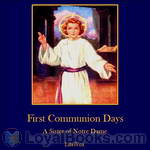 First Communion Days
First Communion Days
A collection of 12 true stories of young children during the time leading up to their First Holy Communion. Written by a Sister of Notre Dame, this is the companion volume to "True Stories For First Communicants" | |
By: Thomas Cooper (1805-1892) | |
|---|---|
 The Bridge of History Over the Gulf of Time: A Popular View of the Historical Evidence for the Truth of Christianity
The Bridge of History Over the Gulf of Time: A Popular View of the Historical Evidence for the Truth of Christianity
Written by the former skeptic, poet, and scholar, Thomas Cooper, The Bridge of History Over the Gulf of Time admirably sets forth a winsome defense of Christianity. Written as the substance of fourteen years of lectures, at the request of his hearers, Cooper leads his reader across the bridge of history, through the centuries, tracing Christianity. At last, he addresses "Leben Jesu" by Dr. David Friedrich Strauss, discusses the historicity of the four Gospels, and offers some concluding evidences for the truth of Christianity. (Introduction by tzieger) | |
By: Peter Kropotkin | |
|---|---|
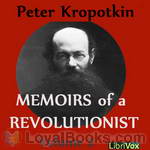 Memoirs of a Revolutionist, Vol. 2
Memoirs of a Revolutionist, Vol. 2
Peter Kropotkin was a Russian anarcho-communist and scientist. This is his autobiography, and he writes not only about his own life, but also about 19th century Russian society and politics. He was born into the nobility and had a military education, but he gradually abandoned the values of his social class and became an anti-authoritarian socialist, opposed to both the rule of the Tsars and to the seizing of power by the authoritarian Bolsheviks. He was also interested in literature, biology, economics and geographical exploration. This second and last volume of his memoirs covers his time in St Petersburg, his time in prison, and his journeys in Western Europe. ( | |
By: Alice Lady Lovat | |
|---|---|
 The Marvels of Divine Grace
The Marvels of Divine Grace
These are Alice Lady Lovat's meditations on the treatise "Del Aprecio y Estima de la Divina Gracia," written by the prolific Roman Catholic theologian and mystic Juan Eusebio Nieremberg, S.J. (1595-1658). Nieremberg's treatise was published in 1638 in Madrid, where he taught Sacred Scripture at the Jesuit Colegio Imperial. Abbot Oswald Hunter-Blair, O.S.B. wrote the preface for Lovat's book, which bears an imprimatur. (Introduction by dave7) | |
By: Henry Morgenthau (1856-1946) | |
|---|---|
 Ambassador Morgenthau's Story
Ambassador Morgenthau's Story
Ambassador Morgenthau’s memoirs of his years in the service of the United States in Constantinople, (today Istanbul), are an important primary historical resource for the study of the dissolution of the Ottoman Empire and the Armenian Genocide. During this genocide, approximately 1,500,000 Armenians living in Anatolia were murdered in an attempt to rid Turkey of its non-Turkish populations. Mr. Morgenthau left Turkey a frustrated man, having done all that he was able through diplomatic circles to halt the murders, to no avail... | |
By: Frederick William Faber (1814-1863) | |
|---|---|
 Kindness
Kindness
Father Frederick William Faber was a beloved spiritual writer, preacher, and superior of the Oratory of St. Philip Neri in London. An Oxford scholar and Anglican priest since 1839, Faber converted to Roman Catholicism in 1845 following his mentor John Henry (later Cardinal) Newman. During the 1850s, Father Faber published several popular spiritual books, which have been treasured by Catholics ever since: All for Jesus, Growth in Holiness, The Blessed Sacrament, The Creator and the Creature, The Foot of the Cross, Spiritual Conferences, The Precious Blood, and Bethlehem... | |
By: Theodore Roosevelt (1858-1919) | |
|---|---|
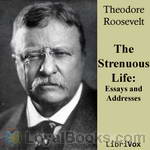 Strenuous Life: Essays and Addresses of Theodore Roosevelt, The
Strenuous Life: Essays and Addresses of Theodore Roosevelt, The
This book is a collection of Theodore Roosevelt’s published commentaries and public addresses on the general theme of the requirements for individual and collective success in the personal, civic, political, and social arenas. (Introduction by Bob Neufeld) | |
By: A Sister of Notre Dame | |
|---|---|
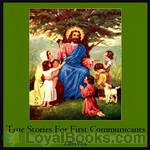 True Stories for First Communicants
True Stories for First Communicants
A charming collection of 12 true, simple stories of real life little boys and girls, written for little ones preparing for their First Holy Communion. | |
By: Ida Dandridge Bennett (1860-1925) | |
|---|---|
 The Flower Garden: A Handbook of Practical Garden Lore
The Flower Garden: A Handbook of Practical Garden Lore
This book is a good reference on the perennial flower gardening and landscaping. It contains information on growing the plants from seed and explains how to grow and care for the traditional garden flowering plants, bulbs, trees, and shrubs. There are sections covering all aspects of ornamental gardens including water gardens and caring for house plants in the winter. The author has lots of unexpected but good advice in her chapter of Don’ts, for example: "Don’t supply with cut flowers, plants... | |
By: Charles H. Mackintosh | |
|---|---|
 Notes on the Book of Genesis
Notes on the Book of Genesis
This chapter by chapter commentary on the first book of the Bible is full of spiritual insights. C H Mackintosh wrote in the late 19th century on a wide range of Biblical topics. He was well known as a speaker in Brethren circles, and his written work continues to inspire Bible students all over the world. | |
By: G. K. Chesterton (1874-1936) | |
|---|---|
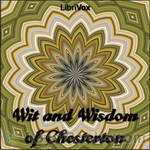 Wit and Wisdom of Chesterton
Wit and Wisdom of Chesterton
In this collection, Bevis Hillier has put together some of Chesterton's essays in "The Defandant", "Varied Types" and "Tremendous Trifles". These 12 pieces were chosen to giving a peek into the margins of Chesterton's work and give a sense of the distinctive flavor of his mind. They were also chosen with an eye to showing what a complex and fascinating character he was. | |
By: Oliver Hartley | |
|---|---|
 Hunting Dogs
Hunting Dogs
The title of this book quotes its object. To tell something of night hunting, and especially to suggest how the ever necessary dog can best be selected, trained, maintained and utilized, is the consideration of first importance. To round out the subject all forms of hunting will receive some notice, and the various breeds of dogs will be so far dealt with, that their value and usefulness in their given fields may be determined. Best of all, the contents of this volume are based on the opinions and declarations of men who have had years of experience in the matters on which they presume to write.(Extracted from the Introduction) | |
By: Grenville A. J. Cole (1859-1924) | |
|---|---|
 Rocks and Their Origins
Rocks and Their Origins
Do you know the difference between sedimentary, igneous and metamorphic rocks? Are you interested in their geologic origin, chemical composition or how each type affects the landscape? Do you know the differences between limestone, granite and marble as building materials? You will find these and lots of other interesting facts about rocks in this second edition of "Rocks and Their Origins" published in 1922. The author, Grenville A. J. Cole, was an English geologist, Professor of Geology in the Royal College of Science for Ireland and an avid cyclist. | |
By: Anonymous | |
|---|---|
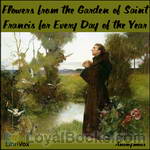 Flowers from the Garden of Saint Francis for Every Day of the Year
Flowers from the Garden of Saint Francis for Every Day of the Year
Here is a collection of 365 short spiritual reflections and moral admonitions of Saint Francis of Assisi (1182-1226) and other notable Franciscans. One might conclude that, while some of these admonitions are applicable to almost anyone, others seem too rigorous, or at least inappropriate for certain vocations or stations in life. This may be explained by recalling that these words of advice and spiritual direction were directed primarily to friars and cloistered nuns. Thus, we detect in these words a great concern for the development of profound personal humility, meekness, celibate chastity, and sorrow for sin... | |
By: Jacob A. Riis (1849-1914) | |
|---|---|
 Neighbors – Life Stories of the Other Half
Neighbors – Life Stories of the Other Half
These stories have come to me from many sources—some from my own experience, others from settlement workers, still others from the records of organized charity, that are never dry, as some think, but alive with vital human interest and with the faithful striving to help the brother so that it counts. They have this in common, that they are true. For good reasons, names and places are changed, but they all happened as told here. I could not have invented them had I tried; I should not have tried if I could... | |
By: John Stuart Mill (1806-1873) | |
|---|---|
 Autobiography of John Stuart Mill
Autobiography of John Stuart Mill
John Stuart Mill (20 May 1806 – 8 May 1873), British philosopher, political economist, civil servant and Member of Parliament, was an influential liberal thinker of the 19th century. He was an exponent of utilitarianism, an ethical theory developed by Jeremy Bentham, although his conception of it was very different from Bentham's. He was a forceful proponent in the fight for government intervention in social reform. | |
By: Mark Twain | |
|---|---|
 Anti-imperialist writings
Anti-imperialist writings
This audiobook is a collection of Mark Twain's anti-imperialist writings (newspaper articles, interviews, speeches, letters, essays and pamphlets). | |
By: Frederick Czapek (1868-1921) | |
|---|---|
 Chemical Phenomena in Life
Chemical Phenomena in Life
Published in 1911 as part of the "Harper's Library of Living Thought," this volume presents an introduction to the chemistry of cells in the context of plant physiology and gives an interesting overview of the field of biochemistry and related sciences at the time. The author, Frederick Czapek, was a Czech botanist and professor of Plant Physiology at the University of Prague. He is perhaps best known for his two-volume work on Plant Physiology, "Biochemie der Pflanzen" and for Czapek solution agar or Czapek-Dox medium, a culture medium for cultivation of fungus species such as Aspergillus and Penicillium molds. ( | |
By: Edna Brush Perkins (1880-1930) | |
|---|---|
 The White Heart of Mojave
The White Heart of Mojave
"The White Heart of the Mojave" recounts a 1920's adventure "in the wind and sun and big spaces" of Death Valley by two independent minded women, Edna Brush Perkins and Charlotte Hannahs Jordan. Both women were early feminists, Edna as chairwoman of the greater Cleveland Woman's Suffrage Party (1916-18). At the end of the Great War, the two friends wanted nothing more than to escape "to the solitariness of some wild and lonely place far from city halls, smokestacks, national organizations, and streets of little houses all alike... | |